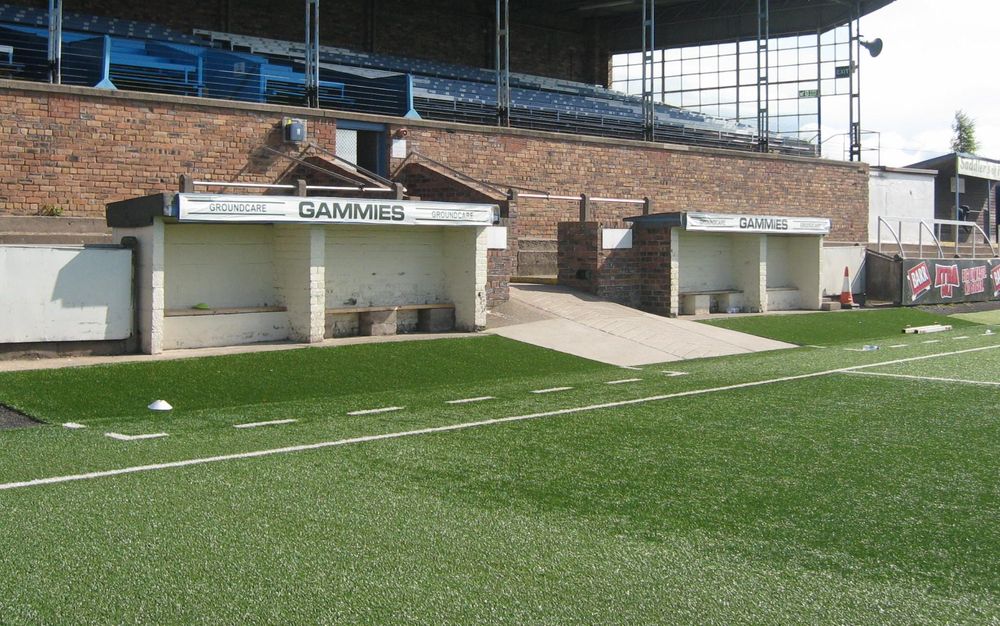
Did you know that a former manager of Spanish giants Real Madrid also had a spell in charge of a Southern League club?
Well, Mike Keeping did and although his spell in charge of Poole Town was a brief one, his story is a rather remarkable one.
The full back was playing for his local side in Milford-on-Sea in Dorset when he was spotted by a scout from Southampton.
He signed as a 17-year-old for the Saints in 1919 during their last season as a Southern League club.
He was given 10 shillings (50p) a week to cover his travelling expenses but had to wait for almost five years before establishing himself in the first team.
He finally made the left back position his in 1925 and did well enough to earn an England international trial.
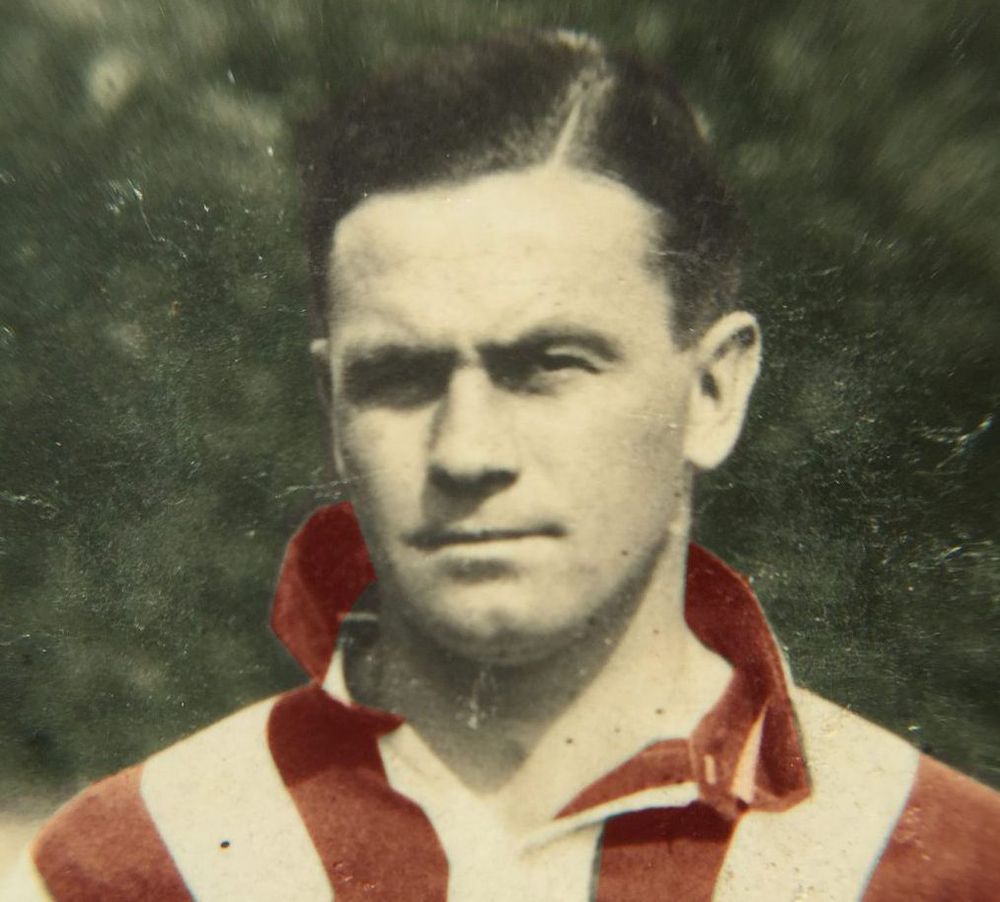
Although England were in need of a settled left-back, Keeping (pictured) was not selected but he did get to go on the FA’s tour of Canada that summer, returning to be ever-present for Southampton in 1926-27, and throughout an FA Cup-run to the semi-final.
In September 1931, he represented the Football League against the Irish League.
England by now had a well-established left-back in Ernie Blenkinsop, who was about to be made captain, so any chance Keeping had of being capped at 29 looked slim.
And any argument was effectively settled in January 1932 when he was struck down with appendicitis and missed the rest of the season.
He was back in 1932/33 and going strong – until February when he was sold to Fulham after totalling over 270 games for the Saints.
Jimmy McIntyre – the man who had given Keeping his start and who was now managing Fulham – reckoned that a fee of £5,100 was “the best deal I ever brought off.”
Keeping remained at Craven Cottage until 1941, making 205 appearances when he returned to Milford and the family’s motorcar business.
However, from February 1948 to October 1950 he was coach/manager at Real Madrid.
He won the Copa Eva Duarte, the precursor of the Spanish Supercup, winning the final as cup winner of 1947 against the champions of 1947 Valencia CF in June 1948.
In his first match his team shipped four goals in a defeat to Celta de Vigo, a feat only repeated in August 2018 when Julen Lopetegui lost his first match 2-4 to Atlético de Madrid in the UEFA Super Cup final.
Their best league placings under Keeping were the third and fourth spots in 1949 and 1950 and he was sacked in October 1950 for `unsuitable remarks`!
After having had an administrative position with Dutch side Ermelo, in January 1959 he became successor to former England player Stan Rickaby at Southern League club Poole Town.
The Dolphins finished eighth in the South East Division before he resigned in September 1960 and took over as manager of the Dutch Second Division side Heracles Almelo.
He died in March 1984 at the age of 81.
Tommy Dougall was yet another to lose the peak of his playing days to the Second World War.
The skilful outside right, born in Scotland, was 18 when the war broke out and he had been playing for Hellenic League side Morris Motors.
After being demobbed, Dougall signed for Second Division side Coventry City, but failed to make the breakthrough with the Sky Blues and he spent time on loan to Southern League outfit Guildford City – a club nearer home - in the 1946/47 season.
In 1947 he left Coventry to join Brentford, who had just suffered relegation from the First Division.
But his season with the Bees gleaned only a couple of first-team appearances and he was on the move again in 1948 to First Division Sunderland.
The Black Cats possessed some fine players at the time, such as Len Shackleton, Ivor Broadis and Willie Watson.
He managed 3 games in the senior side at Roker Park before he returned south in 1950 and signed for Southern League Yeovil Town.
He made 18 appearances for the Glovers, scoring one goal in his one campaign at the Huish.
His next port of call was league rivals Tonbridge, where he went on to make 59 appearances in two-and-a-bit seasons.
After retiring from playing, Dougall took up the `magic sponge` as trainer at Southern League Hillingdon Borough, then still known as Yiewsley.
He then took up the managerial reins in 1963.
After the change of name, Dougall led Boro to promotion to the Southern League Premier Division after finishing as runners-up to neighbours Barnet.
However, he moved to Isthmian League side Kingstonian in 1967 but the former FA Amateur Cup winners were on a bit of a downward slide and his tenure didn`t last long.
His introduction to the Kingstonian first-team squad was on a tour to Spain.
However, he wasn`t impressed with the behaviour of some of the senior players, who had quite a strong drinking culture.
A few departures followed and he offered some players expenses which were higher than what they had been getting.
The catch was that he was an insurance salesman and half had to be used to buy an insurance policy!
Gerry Boon, a player with Hastings United from the 1960s, was promoted from reserve team manager in December 1983 after the departure of former Chelsea and England full-back Peter Sillett.
He guided the team to a tenth-place finish in the Southern League Premier Division in what was to be their penultimate season.
Boon`s spell ended when in June 1985 the Board of Directors agreed to surrender the Pilot Field lease at a meeting in the Town Hall.
He later managed Eastbourne United during their Isthmian League days.
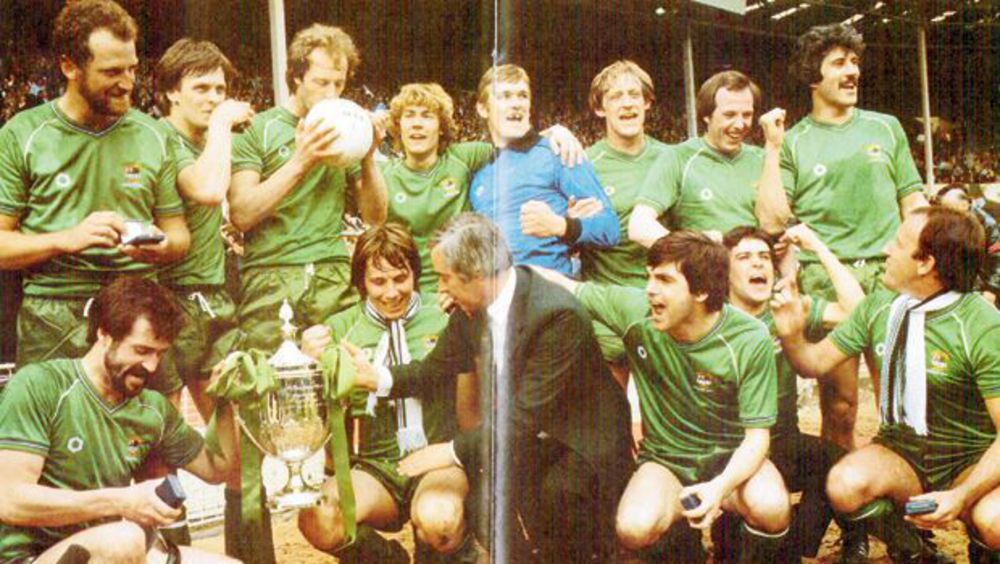
Shortly after that triumph, Millard (pictured with victorious Forest Green side) found himself in the managerial hot seat following the departure of Bob Mursell.
He managed Forest Green in the Southern League Midland Division between 1983 and 1987 before quitting his post, having been unable to lift the team above mid-table.
He joined league rivals and neighbours Gloucester City as assistant manager to Brian Godfrey.
In 1991, Millard took over as first team manager after Godfrey had been sacked but his spell in charge lasted less than three months as he chopped and change the team trying to balance a difficult budget.
He left following a demoralising 5-2 defeat at Crawley Town as Godfrey once again took hold of the reins.
Just prior to the start of the 1996/97 season, Millard, who took over at Bath City.
However, he was plagued by ill health during his tenure at Twerton Park but will always be remembered as the manager who almost produced a miracle to keep City in the Conference.
After Tony Ricketts departure and the financial problems at the club he built a side that came within a point of retaining their Conference place, with the final day victory over Northwich Victoria a game that will remain in the minds of City fans for many years.
The following season saw his side re-group to finish sixth in the Southern League, although he was absent for long periods due to his illness.
These problems finally lead to his departure from City in April 1998, and he sadly died of a heart attack in December 1999, aged just 49.
Cornishman Richie Reynolds started his career as an apprentice at Plymouth Argyle before signing professional forms in February 1965.
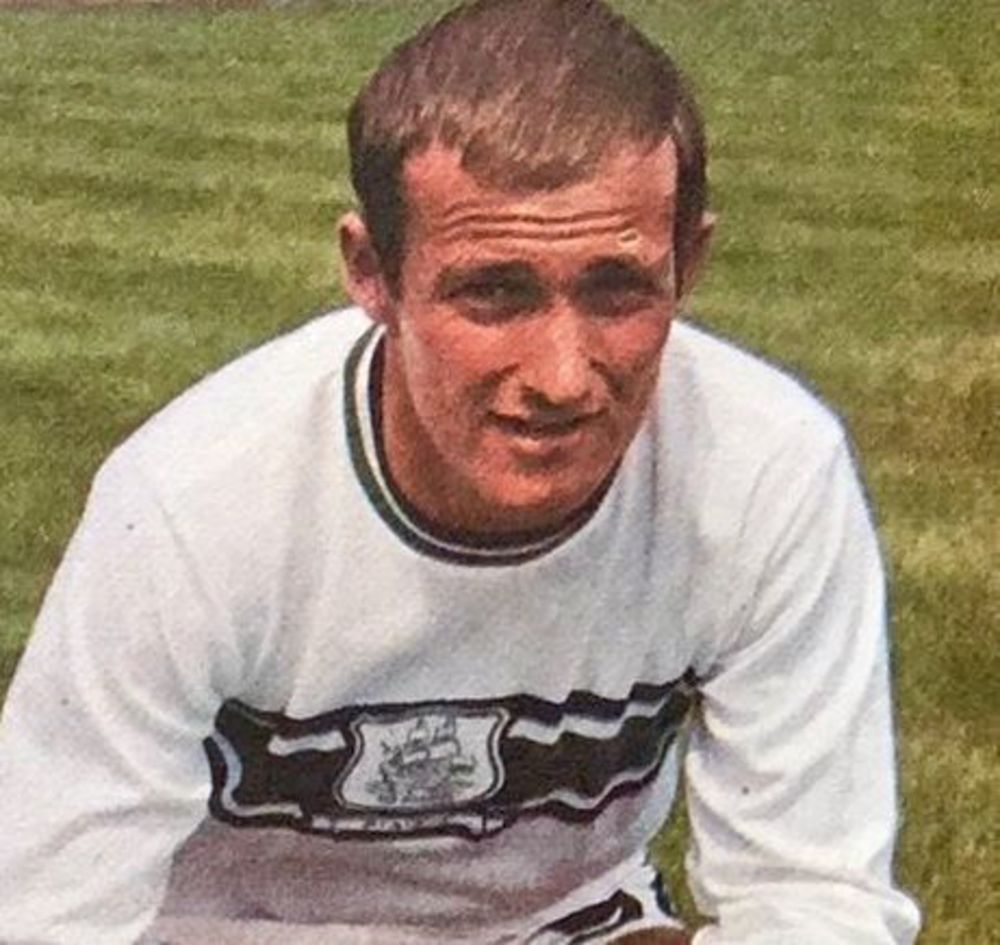
By then, the forward had already been given his first-team debut by manager Malcolm Allison in a Third Round FA Cup tie at home to Derby County in January 1965, five weeks before his 17th birthday.
His first goal came two weeks later when he scored in a 1-1 draw at home to Crystal Palace.
By the start of the 1966/67 season, Reynolds had developed into a powerfully built striker, by the middle of October he had scored 9 goals and his goalscoring brought him to the attention of the England selectors and he played four times for the England Youth side against Scotland, France, Spain and Czechoslovakia.
Season 1967/68 proved to be a difficult season for Argyle with goals hard to come by, with all the strikers struggling, the team only managed 38 goals all season - the lowest total since 1920/21 when they scored 35. Reynolds (pictured) managed to score 5 of those goals.
Season 1968/69 saw Argyle back in Division Three for the first time since their championship-winning season of 1958/59 but despite being in a lower division, Reynolds still struggled to get an extended run in the first team and only scored 2 goals all season.
The following season was pretty much the same for Reynolds, and again, he scored just 2 goals.
Reynolds only played three times for Argyle in 1970/71, playing his last game on 20th February in a 1-1 draw at Shrewsbury Town.
When new manager Ellis Stuttard took over from Billy Bingham in March 1970, Reynolds was loaned out to Southern League Premier Division side Yeovil Town, and he proved to be an instant success, scoring 5 goals in a handful of games, including two in the last home game of the season in a 4-0 win over Hillingdon Borough to clinch the Southern League title.
With the season over, he returned to Home Park but after making 140 appearances and scoring 25 goals, he was transferred to Portsmouth.
Reynolds’ career was rejuvenated at Fratton Park and he soon became a fans favourite, at the end of the 1971/72 season he was voted player of the year.
Unfortunately, Portsmouth were entering troubled times financially but Reynolds stayed until late in the relegation season of 1975/76.
He left the club when a Football League tribunal awarded him substantial compensation for derogatory wages paid to him and instructed them to release him from his contract as they were unable to pay his wages.
Along with many of Portsmouth’s creditors, Reynolds never received the money owed to him.
While at Portsmouth he made 140 appearances and scored 24 goals.
After leaving Pompey he went to Holland to play for FC Haarlem but his time there was cut short when he suffered a serious knee injury playing against Ajax and he returned to England.
He returned to football as player-manager for of Sussex County League sides Chichester City and Wick and then Hampshire Leaguers Petersfield United.
He then managed Fareham Town in the Southern League during their days in the Premier Division.
He was back in Southern League management in 2002/03 when he crossed the Solent to take over at Division One East club Newport Isle of Wight.
However, he only lasted five games before he was replaced and retired from football.
Bilston-born Graham Newton started out with Brierley Hill Boys graduating in summer 1959 as an amateur at Wolverhampton Wanderers without pulling on first team ‘Old Gold’.
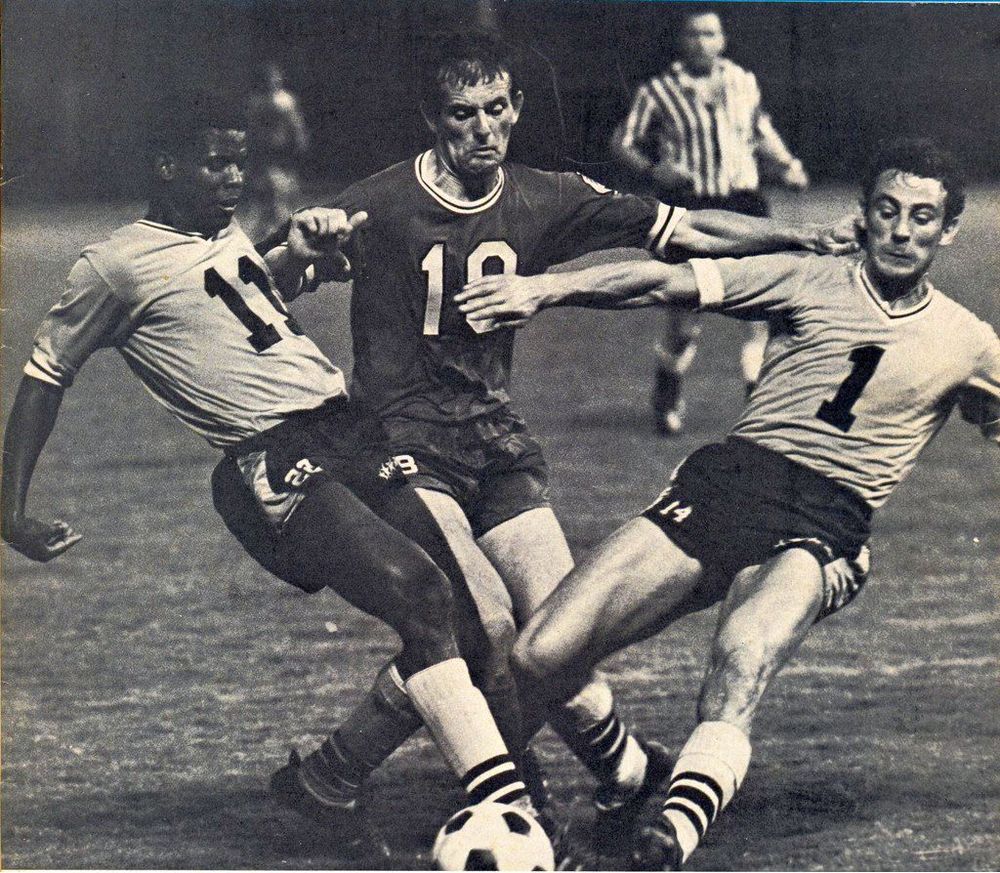
He remained a reserve player but signed professional forms with Blackpool from August 1961.
He then made his mark at Walsall following a trial from February 1962 and by the time he was brought to Coventry City at the end of 1964 for £8,000 he had made 30 League appearances for the Saddlers, scoring 10 goals.
Mainly a reserve player under Jimmy Hill, Newton (pictured - centre) made his Division Three debut in February 1964 in a 2-2 home draw against Brentford.
By the time he left for Bournemouth in December 1964, he had managed just 9 first-team outings and netted 3 times.
He contributed another 3 goals in 33 outings for the Cherries before trying his luck as one of the pioneer English footballers in the States with National Premier Soccer League’s Atlanta Chiefs in April 1967.
He returned to the UK with a stint for Port Vale in November 1968 before returning across the Atlantic with Atlanta Chiefs in 1969/70.
Then-Worcester City manager Wilf Grant signed Newton on a month-long trial in November 1970 and he stayed with the Southern League Premier Division club for the rest of the season before being made first-team captain for the following campaign.
After finishing his playing career with Stourbridge, he returned to Worcester to succeed Grant in the hot seat during times of financial hardship at St George`s Lane.
His spell in charge lasted just 22 games before being sacked in December 1973 following a 6-1 defeat at Chelmsford City.
Undeterred, Newton came back as reserve boss in 1975 and a year later stepped up to the role of the first-team coach under Nobby Clark.
Two league titles and a run to the Third Round of the FA Cup followed before he departed in 1983 to manage Southern Midland Division side Willenhall Town.
He later took charge of Stourbridge before regularly travelling to coach in the United States.
He died of a heart attack while in Spain in February 2019.
Larry Baxter was Deal Town’s player-manager for a 20-month period during the club’s three-season spell in Southern League in the early 1960s.
Leicester-born, Baxter was a skillful winger who made over 200 Football League appearances between 1952 and 1961 for Northampton Town, Norwich City, Gillingham and Torquay United, whom he helped to win promotion from the old Fourth Division in 1960, before dropping down into non-League football with Cheltenham Town in 1961.
Then, in March 1964, he took over as player-manager at the Charles Ground from Billy Jowett and, although the Hoops’ mostly found life a perpetual struggle in the Southern League, Baxter did lead them to their highest-ever position in non-League football, including up to the present day.
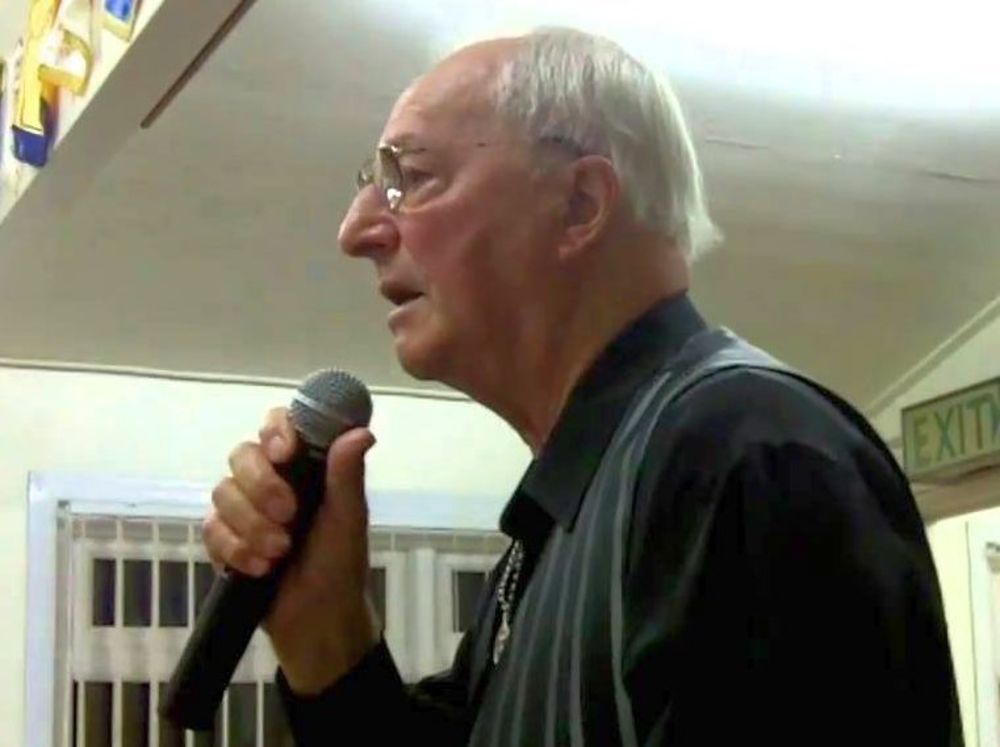
That came in the 1964/65 season when Deal finished 19th in the Southern League Division One and pulled off draws against high-flying teams like Wimbledon away (2-2) and Hereford United (0-0) at the Charles Ground – the only match in which Hereford did not score that season en route to winning the title.
However, with the Hoops continuing to suffer severe financial problems in the Southern League, Baxter had to be transfer-listed along with the rest of the entire squad the following season and he eventually left Deal to join Southern Premier side Margate in December 1965.
A few days later he returned to the Charles Ground when Margate played the Hoops in a Kent Floodlight League game and, ironically, scored an own goal as the ‘Gate ran out 5-2 winners!
But Baxter was unable to win a regular place at Hartsdown Park, making only 7 appearances before being released at the end of the season and he then returned to live in the Midlands.
Two months into the 1966/67 season, Baxter had already added two more clubs to his footballing CV – Midland League Loughborough United and United Counties Leaguers Bourne Town.
He went on to have spells in the Leicestershire Senior League with Newfoundpool WMC, Linwood Lane and Groby – both as player-manager – Enderby Forest, GEC Leicester and Blaby before ending his career with St Andrews.
He later became a club singer before he died at the age of 85 in Leicester.

Most clubs are looking for volunteers. Find out more on the button below:
www.PitchingInVolunteers.co.ukAll the news and results in one place.
REGISTER